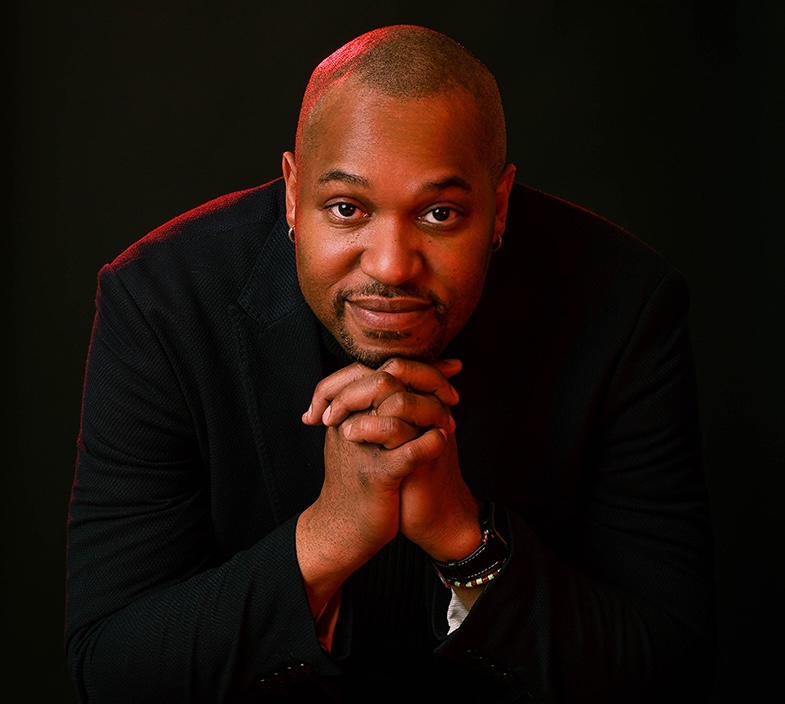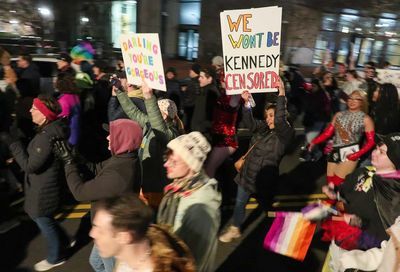Almost three decades before Stonewall, a gay African-American man named Bayard Rustin organized a 1941 March on Washington so successful that it never even took place. Exactly 70 years ago this month, President Franklin Delano Roosevelt signed the executive order barring military contractors from discriminating against African-American workers. His signature was conditioned upon a promise from civil rights leaders that they would cancel the massive march that Rustin and others had planned for July 1941.
According to historian Conrad Black, Roosevelt became upset when he learned that African-Americans planned to protest his slow movement on civil rights, and even began ”grumbling self-importantly about not negotiating ‘with a gun at my head.”’ The president first asked his wife, Eleanor, and New York City Mayor Fiorello LaGuardia to persuade African-American leaders to cancel the protest.
When they refused to cancel the march, Roosevelt summoned LaGuardia and a small number of African-American leaders to the White House on June 18, 1941. One leader was A. Phillip Randolph, the president of the Brotherhood of Sleeping Car Porters, the labor union that first called for the march and had worked closely with Rustin to organize it.
At the White House, Randolph declined another request to cancel the protest and predicted that 100,000 African-Americans would march on Washington. After a terse debate, the parties brokered a deal for Roosevelt to enact the new workplace protections in order to avoid the protest. After only one week of haggling over the proposed language, Roosevelt signed the executive order on June 25, 1941.
Rustin, however, was not invited to that White House meeting, even though he was among the lead organizers of the march. Sadly, Rustin faced discrimination because of his sexual orientation throughout his career. His bigoted enemies, from Sen. Strom Thurmond (R-S.C.) to Rep. Adam Clayton Powell (D-N.Y.), repeatedly tried to use his sexual orientation to discredit his leadership. Rustin was regularly purged by other African-American leaders from important meetings or public appearances out of prejudice or fear that his homosexuality would distract from the civil rights movement.
John D’Emilio’s biography of Rustin is titled Lost Prophet, because Rustin’s legacy is largely unknown despite his masterful work as movement strategist. Rustin not only helped plan the 1941 almost-march that led to Roosevelt’s historic executive order, he also organized the first of the Freedom Rides and served as chief logistical strategist for the 1963 March on Washington where Martin Luther King Jr. delivered his ”I Have a Dream” speech.
Toward the end of his career and life, Rustin advocated for New York City’s ENDA law barring discrimination based on sexual orientation. In the mid-1980s, he wrote to a group of African-American New York City Council members, telling them that their refusal to vote the ENDA proposal out of committee was ”tantamount to the filibustering that succeeded in blocking the Civil Rights Act in the U.S. from 1876 until 1964.” Later in 1986, and within a year of his death at age 75, Rustin gave his first and only interviews about how homophobia had curtailed his influence in the civil rights movement.
Now, 70 summers after Rustin organized a national march to focus America’s attention on workplace discrimination, LGBT Americans and their straight allies are calling on President Barack Obama to sign an ENDA executive order barring anti-LGBT discrimination by federal contractors.
Based on the current administration’s strong record promoting LGBT equality, I have hope that Obama will sign an ENDA executive order by Pride month of next year, or perhaps even sooner – certainly before the 2012 elections. In doing so, our nation’s first African-American president will bring this civil rights history full circle, building on what Roosevelt started 70 years ago, and creating the basic workplace protections that Rustin deserved and fought for throughout his life.
Tico Almeida is a civil rights litigator in Washington and served as ENDA’s lead counsel in the U.S. House from 2007 to 2010.























